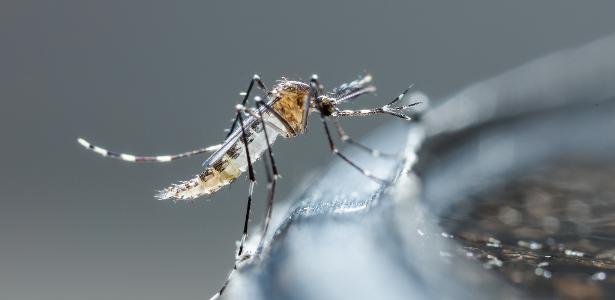A study by scientists from Unesp (Universidade Estadual Paulista), published in the scientific journal PLOS, showed that the progress of the destruction of the Cerrado is directly related to the increase in the number of dengue cases in the region.
The work shows that if the pace of deforestation continues similar to the current one, in 2030 the entire Cerrado region will see a significant increase in cases of the disease, transmitted by the Aedes aegypti mosquito, of African origin.
“An increase in dengue cases is associated with a decrease in cerrado vegetation,” says forest engineer Arlindo Ananias Pereira da Silva of Unesp, lead author of the study.
“If there is no specific and logical public policy, some areas will have a very large impact,” he adds.
The state of greatest concern is the state of Minas Gerais. From 2,200 cases per 100,000 residents, disease records will rise to 4,000 per 100,000 residents.
To prevent the fall from coming to fruition, scientists warn, the country will have to control deforestation and adopt new environmental and public health policies.
In 2020, there were 2.7 million cases of dengue fever worldwide. Of this total, 36.5% was in Brazil. More than half of them are registered in the Cerrado. From 2008 to 2019, dengue fever killed 6,400 people on Brazilian soil.
Deforestation and monoculture
The progression of Aedes aegypti in the tropics is associated with urbanization, especially in cities without basic sanitation infrastructure. Habitat loss and a reduction in the number of natural predators “push” the insect into urban areas, leading to the spread of dengue.
“When a mosquito enters a forest environment, there are means to control it, with predators and also because of the vegetation, the microclimate,” the researcher explains.
“With deforestation and monocultures, you increase temperatures, expand food supplies and reduce natural predators; that’s all the mosquito wants to reproduce,” he says.
The Cerrado originally occupied just over 20% of Brazilian territory. However, since the early 1970s, it has come under great pressure from the agribusiness, which has been intensified in subsequent years.
Since 2005, according to the study, the rate of deforestation has decreased. But in 2020, there was an increase of 13.2% compared to the previous year. Currently, the biome concentrates most of the country’s agricultural production.
After the Atlantic Forest, Cerrado is the biome that has experienced the most changes due to human occupation. It is considered one of the 25 ecosystems on the planet that are in danger of extinction.
Currently, according to Inpe (National Institute for Space Research), an agency affiliated with the Ministry of Science and Technology, approximately 34% of Cerrado’s original acreage remains.
More pessimistic scientists fear that by 2030, the entire ecosystem could be destroyed.

“Writer. Analyst. Avid travel maven. Devoted twitter guru. Unapologetic pop culture expert. General zombie enthusiast.”

